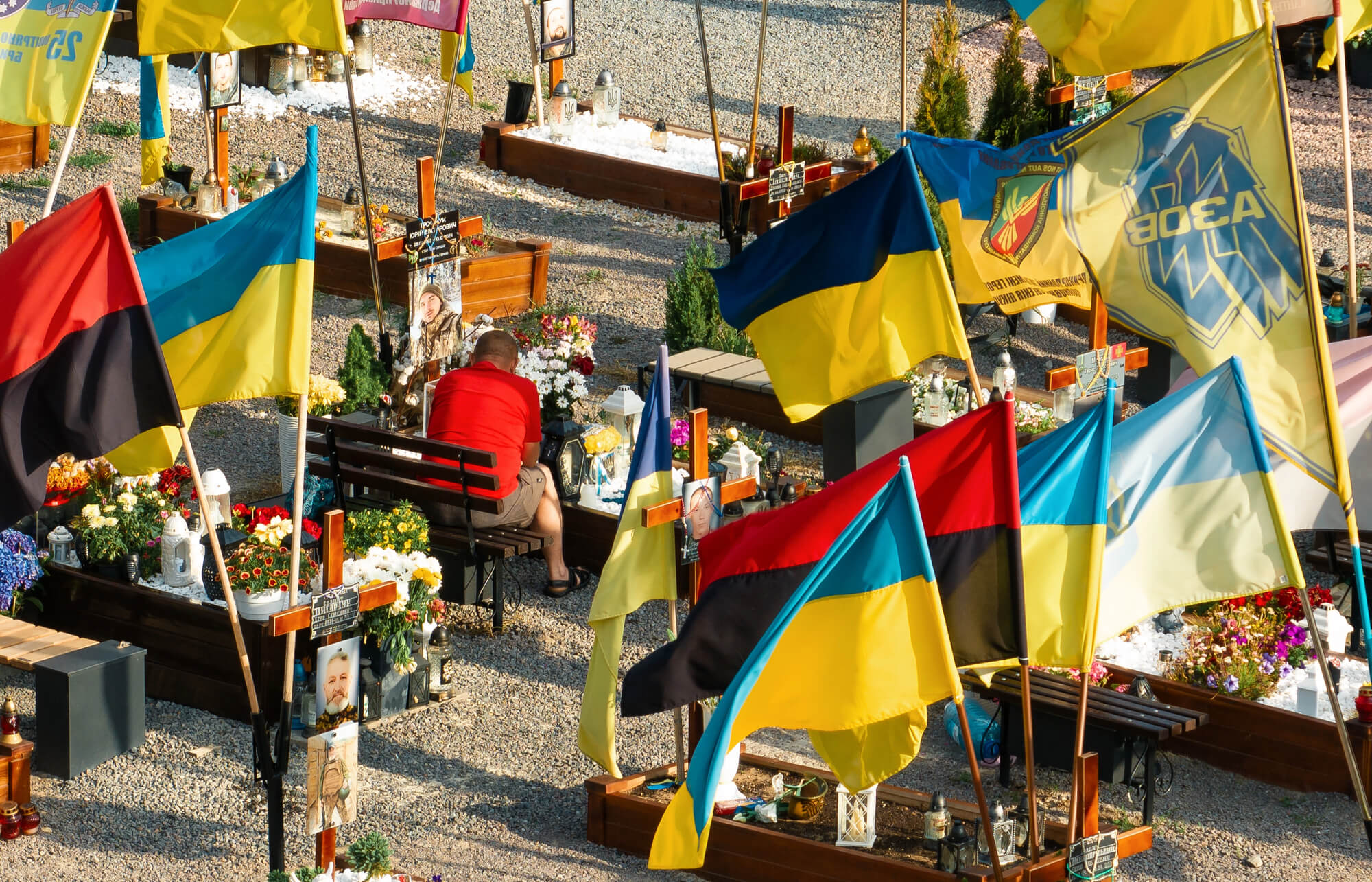Some commentators state that supplying Ukraine with weapons is undermining a “diplomatic solution” to Russia-Ukraine war. We argue that this statement is wrong. The war is continuation of diplomacy with other means, thus Russia’s defeat is the necessary prerequisite for a stable democratic solution.
Many commentators have written in the last few weeks that there is no solution to the Russia-Ukraine war other than diplomacy. Moreover, providing weapons to Ukraine is sometimes framed as ‘undermining a diplomatic solution’.
No one is opposed to diplomacy. However, the key question is what kind of a diplomatic solution do we want to reach? Serious answers to this question are, unfortunately, much rarer than general hand waving about the “diplomatic solution.” And the few answers provided by some commentators tend to imply forcing Ukraine to make further territorial concessions to Russia in order to “deescalate the war”. We examine this matter and specifically argue that further territorial concessions from Ukraine are not only infeasible but will actually lead to escalation.
First, usually a ‘diplomatic solution’ implies some compromise, i.e. one side makes some concessions, the other side does likewise, and they strike a deal that neither side likes but each promises to observe. What do we see in the case of the Russia-Ukraine war? Ukraine was compelled by the US and EU to not resist Russia when Russia annexed the Crimean peninsula in 2014. Russia went on to grab parts of Ukrainian territories in the East using the Russian secret service, disguised regular army, and local collaborators. The Ukrainian army, despite its dire state at the time, counteracted and successfully liberated a number of cities, including Mariupol and Slovyansk, until Russia launched an invasion with its regular army at the end of the summer. In August 2014, Russia promised to let Ukrainian troops go out from the surrounded city of Ilovaisk and then shot dead several hundred people within the “green corridor.” This resulted in the first Minsk agreement aimed at a ceasefire – which was never implemented, because Russians continued to grab Ukrainian lands by force. During the heavy fighting in January 2015 near Debaltseve, Minsk II agreement was signed with the intermediation of Chancellor Merkel and President Holland.
The first clause of this agreement envisages a ceasefire and the movement of heavy weapons away from the frontline. This clause was never implemented. Russians continued shooting at Ukrainian positions, and sometimes at civilians. Russian occupants organized concentration camps in the occupied territories, abducted and tortured people, and implemented extrajudicial killings. At the same time, Russia was trying to force Ukrainians to recognize the so-called “people’s republics of Donbass” and start direct negotiations with them – although these are nothing more than puppet administrations installed by the Kremlin.
The negotiations between Ukraine and Russia moderated by OSCE lasted for the last eight years in Minsk. The only results were a few exchanges of prisoners. Political demands of Russia never changed – Ukraine should organize elections in the occupied territories, cede Crimea, and amend the Ukrainian Constitution, which would in fact mean losing Ukrainian sovereignty. Russia’s proposal remains unchanged right now – only in a more brutal form and with proliferation of genocidal practices to the rest of Ukraine, as demonstrated in Bucha, Mariupol, and many other places.
This brief review of recent history underscores two points: (1) Russia wants to erase Ukraine from the map; (2) Russia does not respect any agreements it reached in the past (starting with the Budapest memorandum of 1994).
Thus, both conditions for diplomacy fail:
- If only one side makes concessions, this is not a compromise; this is a capitulation.
- If one side does not intend to implement the deal concluded, then there can be no deal.
We previously discussed why forcing Ukraine to cede more territories to Russia will not be a sustainable solution and will only lead to the escalation of the war. In short, Russia will kill or deport people from these territories and will use them as a springboard to attack the rest of the country, in the same way it used occupied Crimea and parts of Donetsk and Luhansk regions. And if Russia occupies the entire Ukraine, it will threaten other countries.
To make things clearer, consider the following thought experiment: would you let Russia occupy Bayern (or Breton or Calabria or Bask-Kiskun) if Russia promises not to use nuclear weapons? Probably not. Why? Because you would not be willing to let Russian soldiers rape and kill people in those provinces. Furthermore, there is nothing that can prevent Russia from demanding more concessions in the future. Indeed, if Bayern can be given, then another province may be given. But if Bayern can’t be given to appease Russia, why should one sacrifice Ukrainians?
Today, Russia is a fascist state with the population united around their führer and their hatred of the rest of the world. Russian people are willing to make many sacrifices to impose their ‘greatness’ onto other states and to make others ‘respect’ (i.e., obey) them. They perceive any concessions as a weakness and as an invitation to escalate.
What can one do in this case? If war is merely the continuation of diplomacy with other means, military defeat was the diplomatic solution for Nazi Germany or Tojo Japan that behaved like Russia today. In this diplomatic solution, the least one can expect is the withdrawal of Russian troops from all Ukrainian territory, payment of reparations, and neutralization of the nuclear threat.
However, diplomats don’t have to wait until the war is over. They can already start thinking about a future security architecture without a rogue regime that repeatedly attacks other countries and employs nuclear blackmail. This is where the diplomatic discussion should be. This would be the ultimate diplomatic solution.
Attention
The authors do not work for, consult to, own shares in or receive funding from any company or organization that would benefit from this article, and have no relevant affiliations





